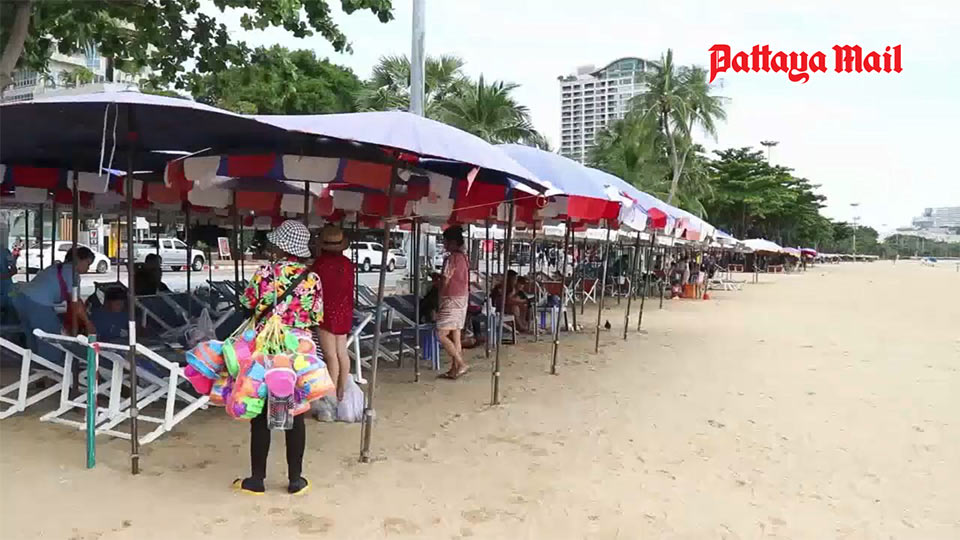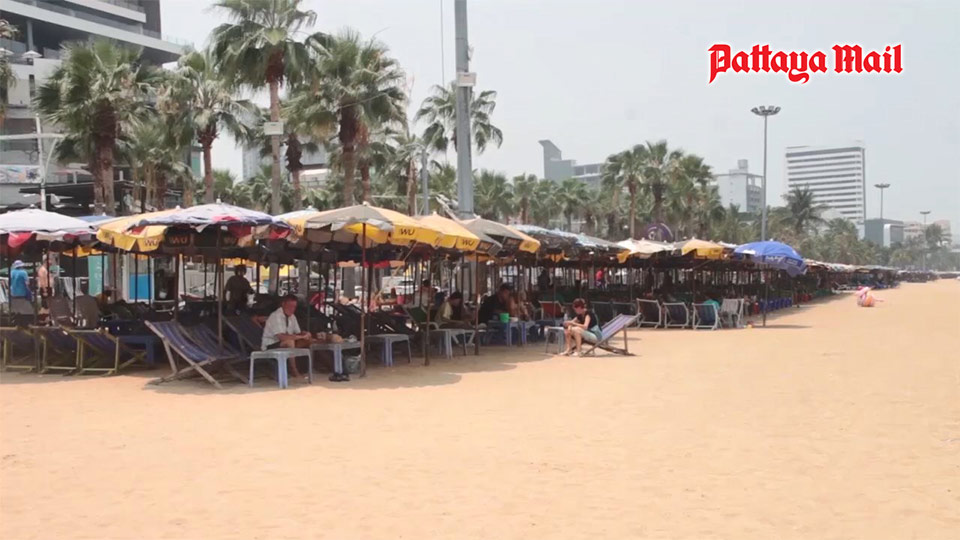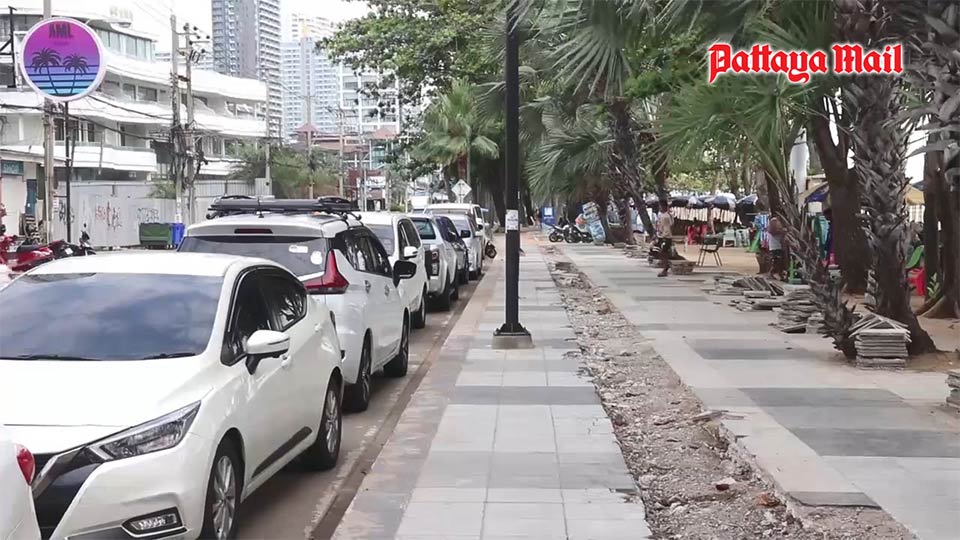
PATTAYA, Thailand –In an effort to enhance visitor convenience and enforce order in public areas, Pattaya City has implemented stricter regulations regarding public parking and beach bed operations. This initiative aims to ensure that spaces are not obstructed and to facilitate easier access for tourists.
Wutisak Cherkkij, Deputy Mayor of Pattaya, stated that the narrow roads leading to the beach, which stretch only 2.8 kilometers, have limited capacity for both locals and tourists. Fortunately, several shopping centers provide parking options, allowing visitors to switch from vehicles to a more leisurely pace.

However, the municipality has observed that many business operators have been placing tables, chairs, and other items in public spaces, obstructing access. Such actions are considered violations, as these streets are public areas where such practices are prohibited. As a response, city officials have been instructed to conduct thorough inspections and take strict legal action against those who infringe on these regulations.

Furthermore, beach bed operators, who play a crucial role in accommodating tourists on Pattaya’s public beaches, are required to adhere to city rules diligently. Although they are permitted to charge minimal fees for their services, some operators have failed to comply with the standards expected for visitor care and service.

As a consequence, any operator not complying with these regulations will face penalties, including a temporary shutdown of operations for 15 days. Continued violations may result in extended suspensions of up to 30 days, and repeat offenders could have their concessions permanently revoked, ensuring that beach areas remain open and accessible to the public.









